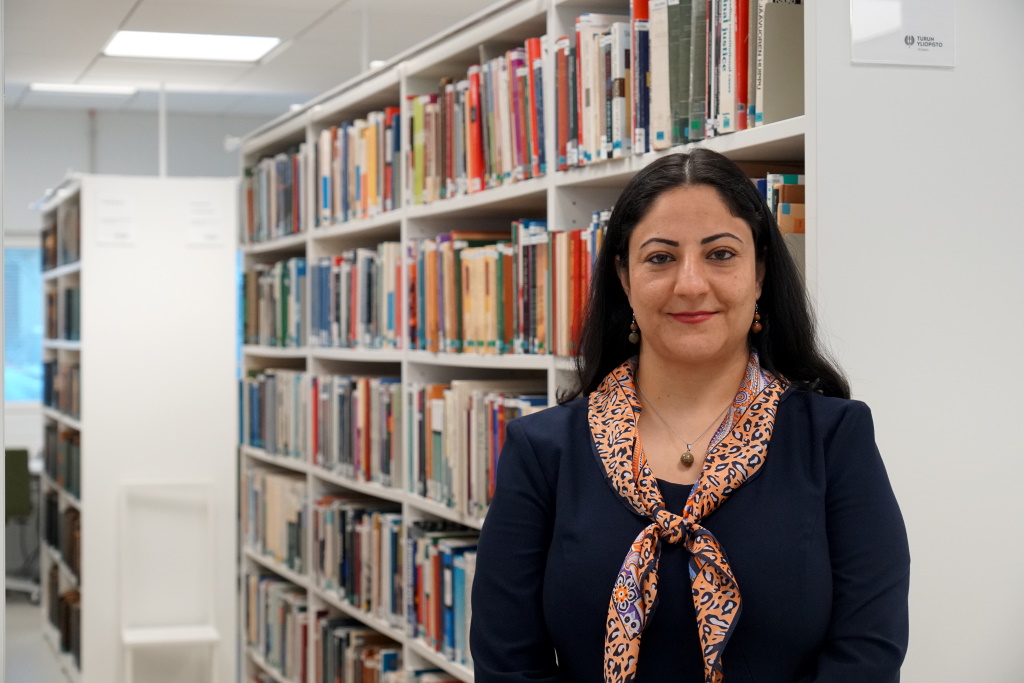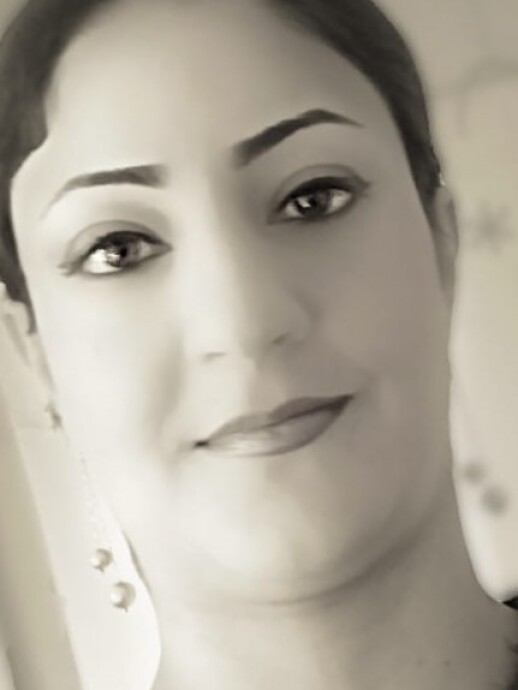Oikeustieteellisen tiedekunnan Tutkija valokeilassa -uutissarjassa esittelyvuorossa on tutkijatohtori Mehrnoosh Farzamfar.
Position in the Faculty of Law: postdoctoral researcher in laws
Degrees: two master’s degrees (in comparative and public international law and in human rights law) and a doctoral degree in constitutional law.
Fields of interest: legal studies and jurisprudence, legal anthropology, security studies, postcolonial approaches to law, multidisciplinary research in law, human rights law, migration and asylum law
Describe your career path. What led you to where you are today?
From a very young age, I have been concerned about inequalities and lack of justice in different societal contexts. This led me to study human rights law. Combined with a genuine interest in research and teaching, I ended up working in the academia in the field of human rights law and fundamental rights protection.
What projects are you currently working on?
At Turku Law Faculty, I am currently working for JuRe Research Consortium (Just Recovery from Covid-19? Fundamental Rights, Legitimate Governance and Lessons Learnt), funded by the Strategic Research Council (SRC) at the Academy of Finland. In this project, we explore the ways in which the political, legal and administrative systems could guarantee a fair and justified recovery from pandemics. The focus of my research in this project work is on the protection of human rights and fundamental rights in the context of responding to a pandemic such as COVID-19.

Mehrnoosh Farzamfar opines that the complex and multi-faceted societal challenges we are facing today call for a multidisciplinary approach. Picture: Minna Nerg / University of Turku.
Have your interests evolved since finishing your studies?
Yes, the most significant turn in my study and research interests has been adopting multi/interdisciplinary approaches to legal research. These approaches are very timely, as the societal challenges we are facing nowadays are extremely complex and multi-faceted, going beyond just what the law says on a matter. To be more precise, I have developed an interest in researching law through combining legal issues with non-legal ones, such as security or public interests when colliding with an individual’s rights.
What would you be, if you were not a researcher?
Probably an archaeologist. I am truly fascinated with ancient history. I wouldn’t mind spending my lifetime looking for answers to past mysteries of the World.

Farzamfar is inspired by the success stories of women and girls who have broken barriers to get to where they are today. Picture: Minna Nerg / University of Turku.
What inspires you?
The success stories of women and girls – especially those coming from less privileged or disadvantaged backgrounds; women who had to break social, cultural, and economic barriers to get where they are today and those who opened the path for future generations. Without those heroic efforts, we would not have had women in science, law, politics, technology, etc. today. This does not mean that the task is done; we women still have a very long path to go, but it seems that the history finally is getting on some right paths, when it comes to respecting women’s rights.





